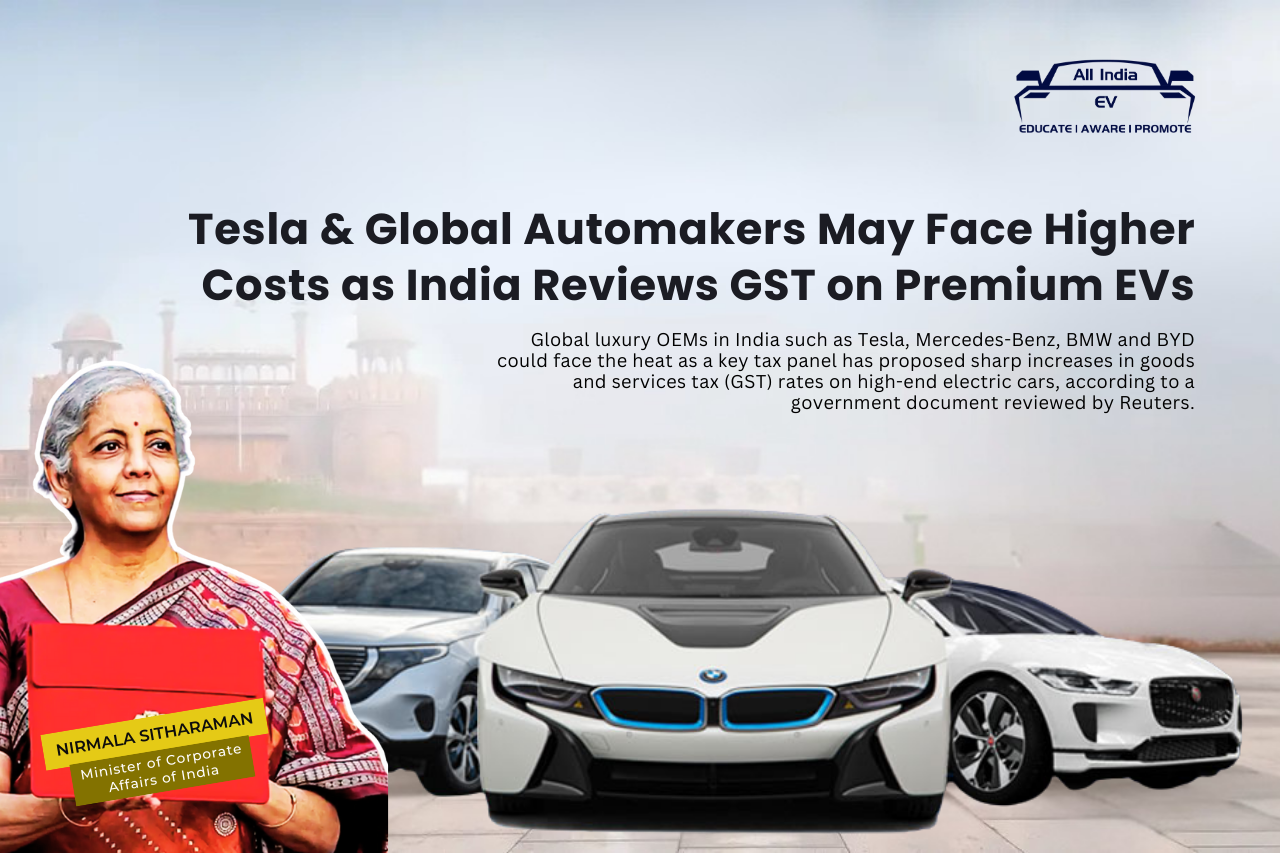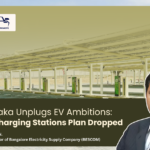
Panel Proposes 28% GST on EVs Above $46,000 as India Reviews Premium EV Tax, Impacting Tesla and Global Carmakers
Global luxury carmakers including Tesla, Mercedes-Benz, BMW, and BYD may face significant cost escalations in India as a key tax panel has recommended sharp Goods and Services Tax (GST) hikes on high-end electric vehicles (EVs).
According to a government document reviewed by Reuters, the panel has proposed raising GST on electric cars priced between ₹20 lakh and ₹40 lakh from 5% to 18%, and imposing an even higher 28% rate on EVs priced above $46,000 (₹38 lakh approx.). The recommendations argue that these vehicles primarily cater to affluent buyers and are mostly imported rather than locally manufactured.
GST Council to decide in September
Prime Minister Narendra Modi’s administration has also proposed eliminating the 28% GST slab altogether. This leaves the GST Council — meeting on September 3–4 — with options to either shift luxury EVs into an 18% GST category or create a new 40% luxury goods slab, which would drastically raise their prices.
Why the recommendations matter
These recommendations are part of a broader tax reform agenda aimed at simplifying GST, reducing rates on essential goods, and encouraging domestic manufacturing. At a time when trade tensions with the US remain high, India’s move to penalize high-end imports could protect local industry but may also slow luxury EV adoption.
India’s electric car market remains small but is growing rapidly, with EVs accounting for about 5% of passenger car sales between April and July 2025. During this period, sales nearly doubled to 15,500 units, government data shows.
Luxury OEMs at risk
While domestic automakers like Tata Motors and Mahindra & Mahindra have limited offerings in the premium EV category, international brands dominate the upper-end segment. Tesla’s Model Y, launched in India at a base price of $65,000, along with premium EVs from Mercedes, BMW, and BYD, could see significant price increases if the GST proposals are approved.
Tesla already faces import duties of nearly 100%, making its vehicles substantially costlier for Indian consumers. Any GST hike would add to these costs, further narrowing Tesla’s opportunity to expand in India. The company has only recently begun accepting bookings and opened two showrooms in major cities.
Market leaders and current dynamics
Despite the focus on luxury brands, Tata Motors continues to dominate India’s EV passenger car market with nearly 40% share, followed by Mahindra at 18%. BYD holds 3% share, while Mercedes-Benz and BMW together account for 2%, government figures indicate.
Balancing EV adoption and domestic manufacturing
The GST Council’s decision will be closely watched as it attempts to balance India’s goal of accelerating EV adoption with the need to protect domestic industry from an import-heavy luxury segment.
If the new GST rates are implemented, analysts expect price-sensitive consumers in the ₹20 lakh–₹40 lakh range to be most affected, potentially slowing momentum in a segment that is just beginning to grow.










